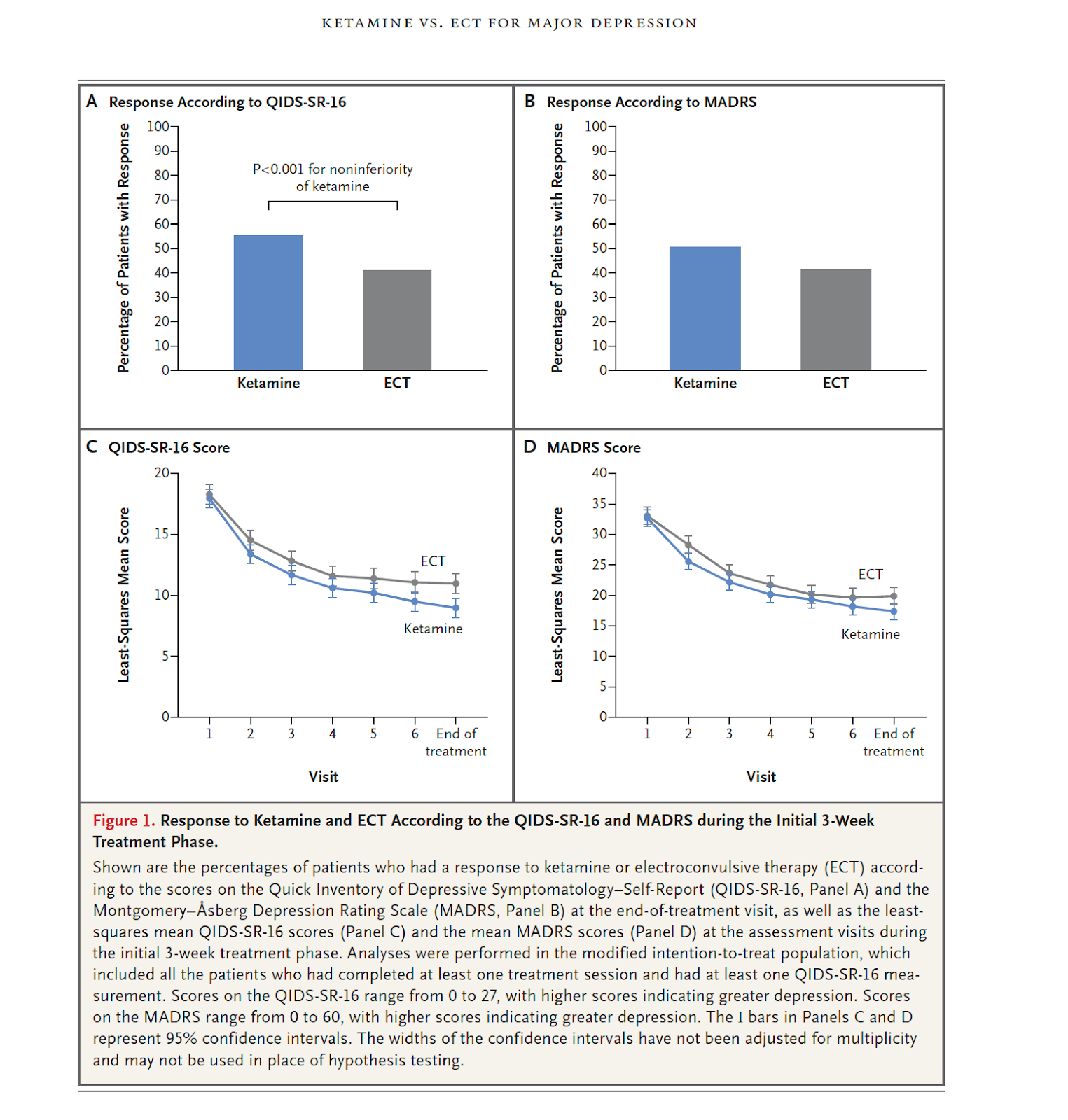Concomitant Medication and ECT: New Data From Germany
Out on PubMed, from researchers in Germany, is this paper:
The influence of concomitant antidepressant and antipsychotic medication on antidepressant effect and seizure duration of electroconvulsive therapy.
Front Psychiatry. 2024 Mar 18;15:1341508. doi: 10.3389/fpsyt.2024.1341508. eCollection 2024.PMID: 38563025
The abstract is copied below:
Background: A significant proportion of patients with a depressive disorder show resistance to pharmacological and psychotherapeutic antidepressant treatments. Electroconvulsive therapy (ECT) is still one of the most effective treatment methods, especially in the acute phase. In everyday clinical practice, this usually accompanies pharmacological treatment. It has been shown that pharmacological treatment following acute ECT treatment reduces the rate of relapses. However, the effect of various antidepressants (ADs) and antipsychotics (APs) on the effect during the course of ECT has rarely been investigated.
Methods: In this retrospective chart review study, the data of 104 depressive patients treated with ECT were examined. We analyzed the influence of concomitant administration of AD and AP or no psychotropic medication on the effect of ECT using the Montgomery-Åsberg Depression Rating Scale (MADRS). We further analyzed the influence of the ADs Bupropion, Venlafaxine, and Sertraline or no AD and the influence of augmentation with Aripiprazole or Quetiapine or Olanzapine.
Results/discussion: Psychotropic medication did not have an impact on antidepressant efficacy of ECT as measured with the MADRS scores. In addition, the comparison between the antidepressant or antipsychotic medications themselves did not show any significant difference. However, we found a significantly different seizure duration depending on the antidepressant substance that patients received during ECT (p = .008). ECT treatment itself led to a highly significant reduction of 13.3 points in the MADRS (p <.001).
Conclusion: Taken together, our study underlines that concomitant psychotropic medication while doing electroconvulsive therapy does not bare the risk of prolonged seizure duration or does it reduce the effectiveness of ECT. To the best of our knowledge, this study is the first to examine the effect of treatment with antidepressants in combination with antipsychotics while doing ECT. In light of our results, this combination therapy is safe and effective. Bearing in mind the delay in onset of antidepressant action of medication and the importance of antidepressant medication for relapse prevention, this study further supports the recommendation that psychotropic medication should be given in adjunction to ECT.
Keywords: ECT; antidepressants; antipsychotics; electroconvulsive therapy; seizure duration.
The paper is here.
And from the text:
Here's a good retrospective dataset showing little effect of concomitant antidepressant and/or antipsychotic medication on ECT outcome or seizure duration. One interesting tidbit is the slight decrease of seizure duration, rather than the expected increase, with bupropion, further supporting safe concomitant use.
Kudos to these authors for contributing their useful retrospective dataset to the ECT evidence base.










Comments
Post a Comment